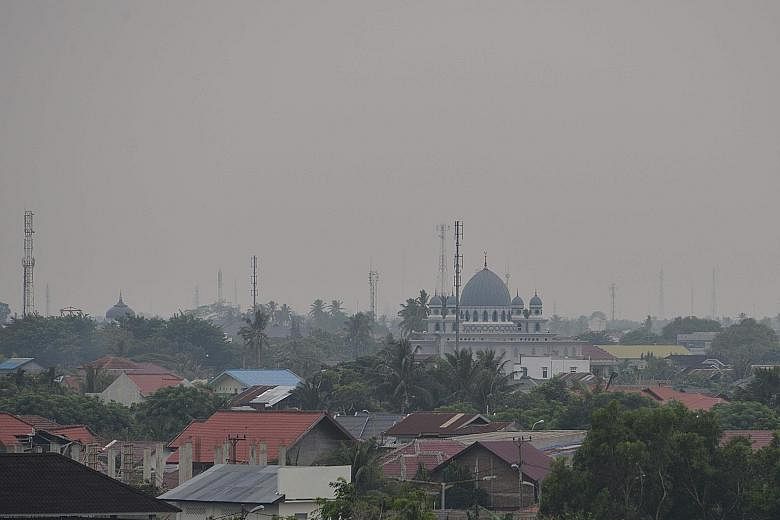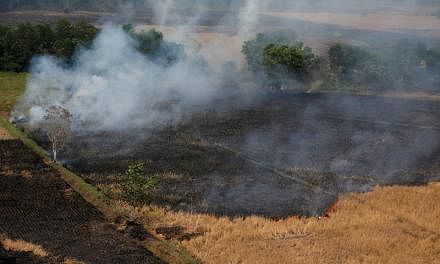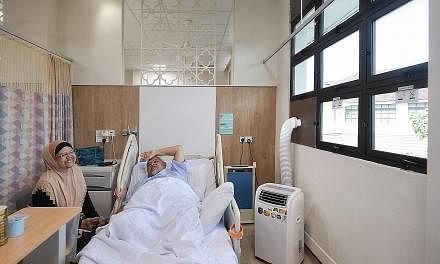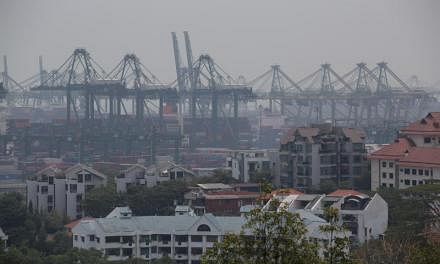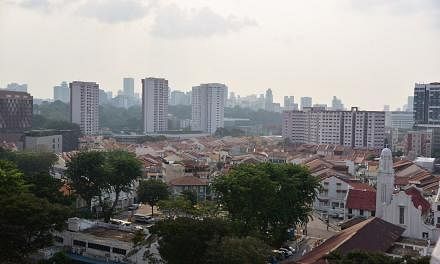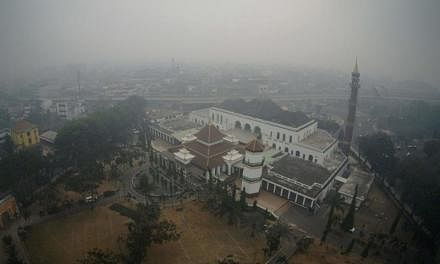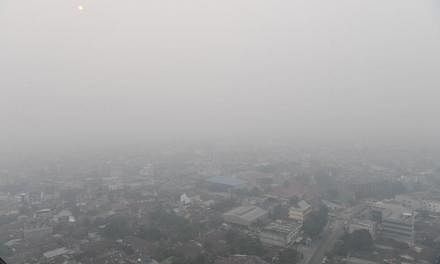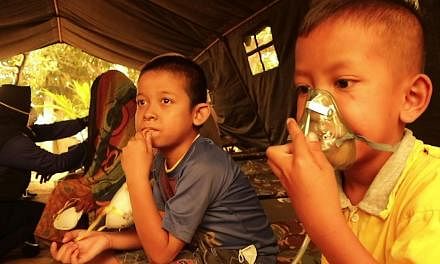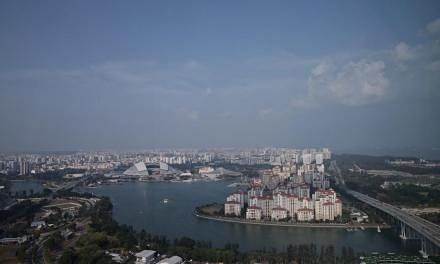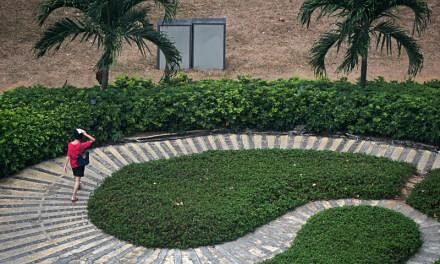Indonesia plans to conduct soil tests to identify plantation companies suspected to have cultivated oil palm, pulp wood or other crops on land after using slash-and-burn techniques to clear it.
For a start, the authorities will target the concessions sealed off by the Environment and Forestry Ministry between last month and this month. These belong to 51 companies - 14 of which are foreign-affiliated - and one individual.
"Their existing crops might be on land that they had cleared by burning, say a year or five years ago. Traces of that would still be there," said the ministry's law enforcement director-general Rasio Ridho Sani.
"We have spoken to our legal counsel and various (technical) experts on our plan to go about doing this," he said during a talk show in Jakarta yesterday.
Last week, the government charged that errant plantation companies had resorted to the slash-and-burn method for clearing land to make way for new plantings, a far cheaper way to do so as opposed to utilising excavators and hiring labour, which would have cost seven million rupiah (S$685) per hectare.
Mr Rasio said his ministry had three options to deal with errant firms - imposing administrative sanctions, which could mean fines and revoking of business licences; filing a civil suit to seek compensation; or pursuing a criminal case to send company management to jail.
Administrative sanctions, Mr Rasio said, were the quickest way to deal with the problem as there was no need to wait for a court ruling. Filing suits before a district court, whether civil or criminal, would mean a lengthier process. But, even if the government lost the case, it would affect the companies' credibility in the eyes of their creditors, partners and customers, said Mr Rasio.
He pledged to step up law enforcement by working with local leaders - regents, city mayors and provincial governors - in fire-prone regions. The local authorities also issue permits for the running of plantations and therefore have the right to monitor the firms and apply penalties.
Mr Rasio told The Straits Times yesterday that a few Singapore-affiliated and Malaysian firms were among the 14 foreign-affiliated ones whose concessions were affected by fires.
The government had earlier named one Singapore-affiliated company. It was Hutan Ketapang Industri, a West Kalimantan province-based rubber plantation subsidiary of another Indonesian company, Sungai Menang, which is a wholly owned subsidiary of Indonesia's Sampoerna Agro. Singapore-based Sampoerna Agri Resources owns two-thirds of Sampoerna Agro.
Four firms affiliated with Malaysian corporate groups, with concessions in West Kalimantan and Riau provinces, had also been named. They were Sime Indo Agro (a unit of Sime Darby Plantation), Sukses Karya Sawit (a unit of IOI Corporation) and Rafi Kamajaya Abadi (a unit of TDM). Only one - Adei Plantation and Industry (a unit of Kuala Lumpur Kepong Group) - was operating in Riau.
Further checks by The Straits Times showed two other Malaysian-affiliated companies were also implicated. They were Sawit Mitra Abadi, a unit of Genting Plantations, and Tabung Haji Indo Plantation, a unit of Malaysia's Tabung Haji.
"These companies opted to save costs, avoiding renting bulldozers. Such costs are nothing compared to the economic and health costs suffered by the haze victims today and the costs borne by the government to fight fire," said Mr Yudi Anantasena, deputy head of the Agency for the Assessment and Application of Technology.
